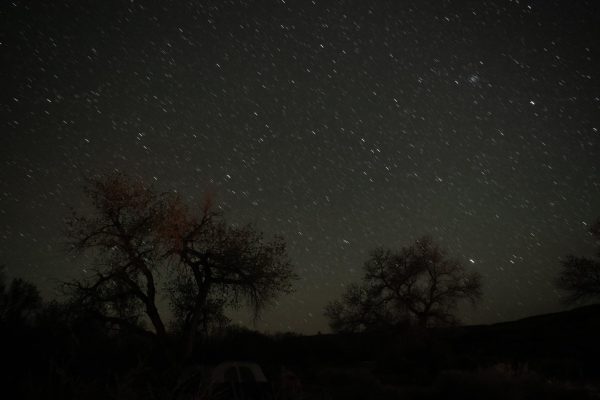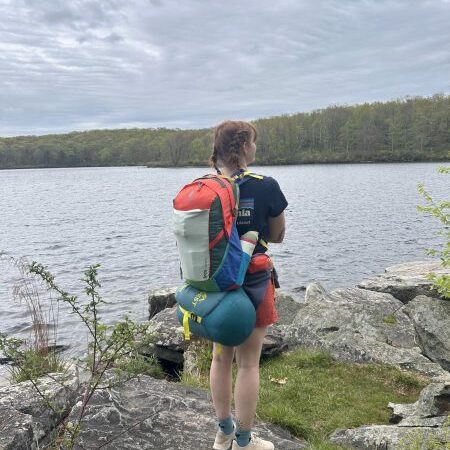We Have to Change How We Talk About the Climate Crisis
We’re entrenched in divisiveness, and it isn’t getting us anywhere. Whether it’s your stubborn, idealistic child or your hard-headed parent we all know someone we feel we can’t have discussions about climate change with. They’ll never see our side.
It might seem counterintuitive to meet people where they’re at in climate conversations considering our diminishing window of opportunity to mitigate our harms on the environment. If we don’t come in with hard-hitting statistics and doomsday messages how will they ever understand the precedence of this issue? If I listen to their perspective am I giving up my values and beliefs to take a moderate stance?
The answer is no. These questions assume we already know what the people we disagree with are thinking and that we should solely surround ourselves with people that reflect our beliefs. The problem with living in an echo-chamber is both sides only become more polarized, heightening conflict and making change even less likely.
The goal of changing how we talk about climate change isn’t to leave conversations feeling less dedicated to fighting it. It’s about fostering connections with the people we’ll be beside when we’re fighting it. We will always live by and work with people we disagree with. Our best way forward is working together.
The primary reason people ignore or deny climate change is because they’re scared. Scared of how their lives are going to change, whether that be from the actual changes to the climate or policy changes that affect the status quo. These emotions can consciously or unconsciously drive the defensiveness and apathy we see on the outside.
The way we can sensitively handle this reality is by asking questions that play into those feelings, rather than the overarching political narratives. For example, instead of asking if they believe in climate change ask them if they’re worried about it or what their thoughts are. The point is not to persuade them of your perspective. It’s to foster curiosity and help them feel like you’re a safe person to talk to. When they open up to you, ensure you repeat what you heard from them in your own words to determine if you’re understanding them correctly. Oftentimes, we think we know what people are going to say before they say it, but there’s no harm in taking it slower and letting them finish their thought. We might be surprised how frequently we get it wrong.
Though you’re not trying to corner or convince the people you’re speaking to, you can and should tell your story too. If you allow people to feel how they feel without barraging them they’ll be more open to doing the same for you.
When I was 16 I decided to become fully vegetarian for the environment and my personal health. I remember speaking with my uncle at a family party who was winding me up for thinking I could change the world when I’m just one person. One delusional young activist. I explained that I don’t think I can change the world on my own by not eating meat but it feels right to me to live a lifestyle that aligns with my values regardless of the outcome. I live my life in accordance with the world I wish to live in, not the one I want to escape.
I also noted that I’m not against meat inherently and that my goal is never to force someone else to adopt my dietary restrictions as food can be deeply personal and affected by numerous factors. Though he started off the conversation by jeering at me for my decisions, he almost immediately stopped when he realized I wasn’t going to do the same. I think adopting a plant-based diet is one of the single best things an individual can do for the planet, but he didn’t become a vegetarian after that conversation. He didn’t need to for it to be productive, because he left respecting me. He left with the view that all young, vegetarian activists aren’t pompous food elitists that think they’re more moral than everybody else.
Conversations like that make a world of difference, because they create a better foundation for progress in the future. They set us up for discussions that don’t instantly devolve into high conflict. It’s the same principle that applies to meditation. For the first while your mind will wander away from your breath frequently. It’ll be difficult to bring your attention back, but eventually it’ll get easier and easier. Then, one day, something will shake your world and all that practice will help you ground yourself when you need it most.
If we want to address the climate crisis we have to address the rifts between us. Having these types of conversations will likely not lead to an immediate change in people’s beliefs, but it will lead to a change in their beliefs about you and your beliefs about that person. We have to work together to solve this problem. Without these conversations it will always be “us versus them,” but the weather doesn’t know we’ve created these invisible chasms. Climate change is a problem for all of us, no matter how we perceive it, and we’re stronger together.
The post We Have to Change How We Talk About the Climate Crisis appeared first on Wasatch Magazine.
Source: https://wasatchmag.com/we-have-to-change-how-we-talk-about-the-climate-crisis/






